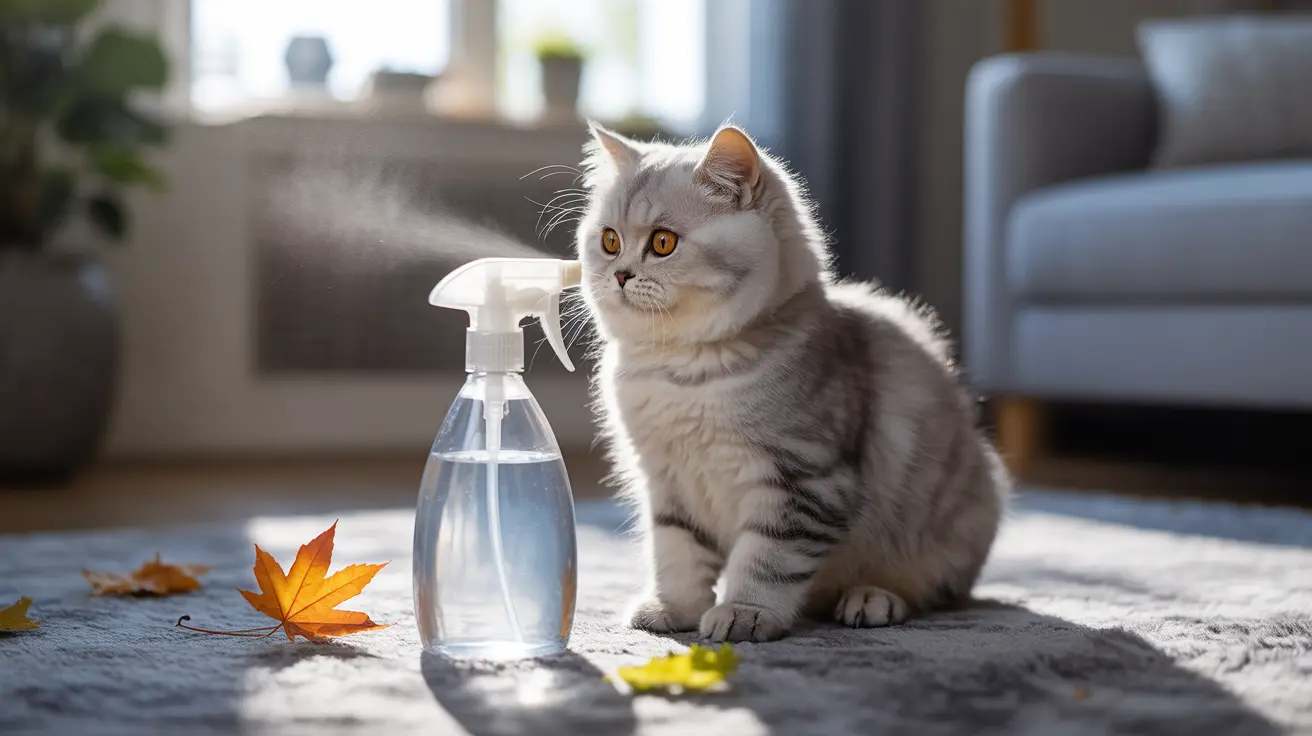Living with cats brings joy and companionship, but managing pet odors can be challenging, especially in apartments. Whether you're dealing with persistent urine smells, litter box odors, or general pet-related scents, there are proven strategies to keep your living space fresh and clean.
In this comprehensive guide, we'll explore effective methods to eliminate cat smells, understand their causes, and implement long-term solutions for a fresher apartment environment. From immediate actions to preventative measures, you'll learn everything you need to know about maintaining a clean-smelling home while keeping your feline friends happy.
Understanding the Source of Cat Odors
Cat odors primarily come from three main sources: urine, litter boxes, and general pet dander. Urine contains uric acid crystals that can persist long after the initial accident, making it particularly challenging to eliminate. These crystals continue to release odors until properly neutralized with specific cleaning agents.
Additionally, cat dander and fur can become trapped in carpets, furniture, and fabrics, contributing to overall apartment odors. Understanding these sources is crucial for effective odor elimination.
Essential Cleaning Solutions for Cat Odors
Enzymatic Cleaners: Your First Line of Defense
Enzymatic cleaners are specifically designed to break down the proteins in cat urine and eliminate odors at their source. These cleaners contain special bacteria that consume the odor-causing compounds, making them particularly effective for persistent smells.
For best results, saturate the affected area completely and allow the enzymatic cleaner to air dry naturally. This gives the enzymes time to break down all odor-causing substances effectively.
Natural Remedies That Actually Work
Several household items can effectively combat cat odors:
- White vinegar solution (1:1 with water)
- Baking soda for carpet and fabric treatment
- Hydrogen peroxide for tough stains (test on a small area first)
Prevention and Maintenance Strategies
Proper Litter Box Management
Maintaining a clean litter box is crucial for odor control:
- Scoop at least twice daily
- Complete litter change weekly
- Regular box washing with mild soap
- Strategic box placement in well-ventilated areas
Air Quality Improvements
Enhance your apartment's air quality through:
- HEPA air purifiers with activated carbon filters
- Regular ventilation with open windows
- Use of pet-safe air fresheners
- Routine carpet and upholstery cleaning
Advanced Odor Removal Techniques
For severe cases, consider these professional-grade solutions:
- Deep carpet extraction cleaning
- UV light treatment for identifying hidden stains
- Professional ozone treatment
- Replacement of severely affected materials
Long-term Solutions and Lifestyle Changes
Implement these strategies for lasting results:
- Regular pet grooming routines
- Scheduled veterinary check-ups
- Using high-quality, odor-controlling cat litter
- Maintaining proper humidity levels in your apartment
Frequently Asked Questions
What are the most effective methods to get rid of cat urine smell in an apartment?
The most effective methods include using enzymatic cleaners specifically designed for pet odors, thorough cleaning with natural solutions like vinegar and baking soda, and ensuring proper ventilation. For severe cases, professional cleaning services may be necessary.
How do enzymatic cleaners work to eliminate cat odors from carpets and furniture?
Enzymatic cleaners contain special bacteria that produce enzymes that break down the proteins in cat urine and other organic matter. These enzymes continue working until the odor-causing compounds are completely eliminated, rather than just masking the smell.
Can household items like vinegar and baking soda remove cat urine smell safely?
Yes, these household items are safe and effective when used properly. Vinegar helps neutralize odors while baking soda absorbs both moisture and smells. However, they work best on fresh stains and may need multiple applications for older spots.
How can I detect hidden cat urine stains causing lingering odors in my apartment?
Use a UV blacklight in a darkened room to locate hidden urine stains. The urine will glow under the UV light, making it easier to identify problem areas that need treatment.
What daily habits help prevent cat odors, especially from litter boxes and marking behavior?
Regular litter box maintenance, proper ventilation, frequent vacuuming, and prompt cleaning of accidents are essential daily habits. Additionally, ensuring your cat is spayed or neutered can help prevent marking behaviors that contribute to odors.






